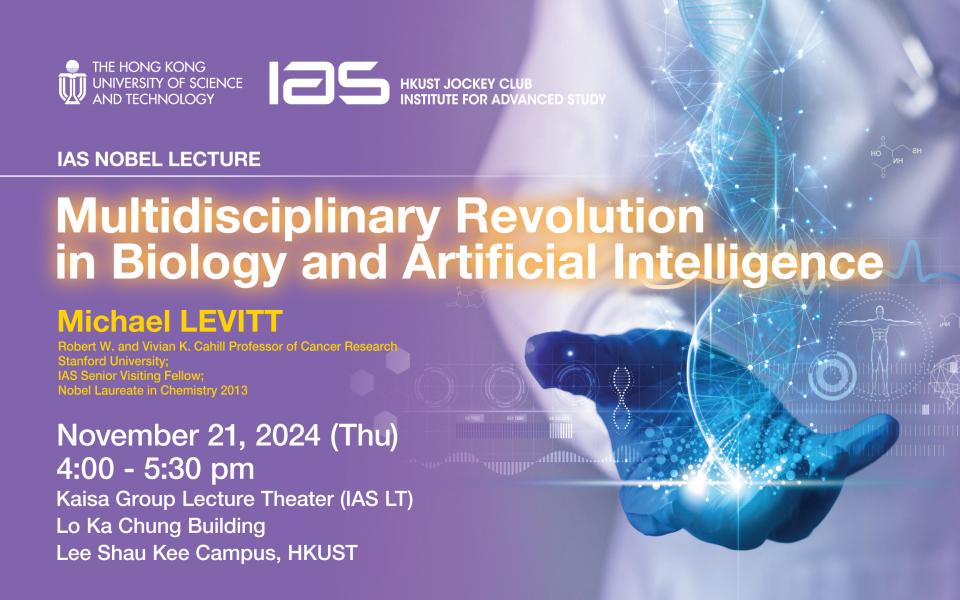IAS Nobel Lecture - Multidisciplinary Revolution in Biology and Artificial Intelligence
Supporting the below United Nations Sustainable Development Goals:支持以下聯合國可持續發展目標:支持以下联合国可持续发展目标:
Abstract
In this talk, the speaker explores the intersection of biology, human intelligence, and artificial intelligence, highlighting the revolutionary developments at their convergence. He introduces the concept of a “triad” of intelligence: Biological Intelligence (BI), Human Intelligence (HI), and Artificial Intelligence (AI). These three distinct forms of intelligence are interconnected, with biology creating humans, humans creating computers, and computers transforming both humans and biology.
The speaker emphasizes how biology has evolved over time, becoming increasingly complex and diverse. He illustrates this complexity using examples from evolution, like eukaryotes, and discusses how diversity increases a species’ chance of survival. This idea parallels the way investors diversify their portfolios to manage unpredictability.
Throughout the talk, the speaker reflects on the pioneering scientists who have shaped modern biology, such as Max PERUTZ and Francis CRICK. He also discusses the role of computational biology, explaining how AI has been applied to model protein structures and fight diseases like cancer. He highlights the importance of AI in accelerating drug discovery and development, citing specific innovations like Insilico Medicine and NVision’s MRI technology.
The speaker concludes by discussing the rapid advances in AI, including breakthroughs like AlphaFold, which solved long-standing challenges in protein folding prediction. He advocates for AI as a tool that can enhance human intelligence and improve research outcomes, particularly in education and lifelong learning. His overarching message is one of optimism, urging scientists and society to embrace the transformative potential of AI in combination with biology.
About the Speaker
Prof. Michael LEVITT received his PhD in Biophysics from the MRC Laboratory of Molecular Biology and Cambridge University in 1971. He had been faculty at the Weizmann Institute of Science and Cambridge University. He joined Stanford University in 1987 and is currently Robert W. and Vivian K. Cahill Professor in Cancer Research at the Department of Structural Biology. He is also a Professor of Computer Science at Stanford (by courtesy).
Prof. Levitt’s research interests include RNA & DNA modeling, protein folding simulation, classification of protein folds & protein geometry, antibody modeling, x-ray refinement, antibody humanization, side-chain geometry, torsional normal mode, molecular dynamics in solution, secondary structure prediction, aromatic hydrogen bonds, structure databases, and mass spectrometry. His current work focuses on protein evolution, the crystallographic phase problem and Cryo-EM refinement.
Prof. Levitt received the Nobel Prize in Chemistry 2013, together with Profs Martin KARPLUS and Arieh WARSHEL, for the development of multiscale models for complex chemical systems. He is also recipient of the Federation of European Biochemical Societies Anniversary Prize. He is a Member of the US National Academy of Sciences and the European Molecular Biology Organization, and a Fellow of the Royal Society and the American Academy of Arts and Sciences.
For Attendees' Attention
Seating is on a first come, first served basis.
